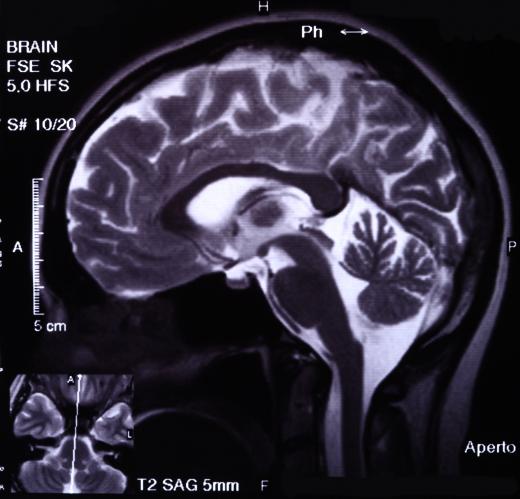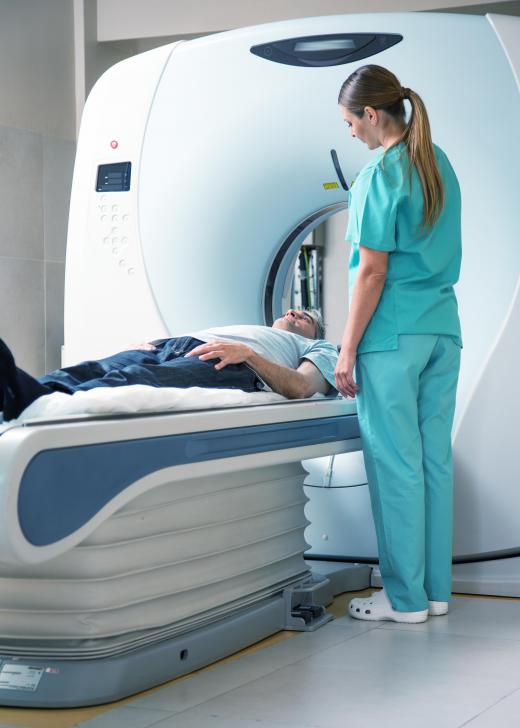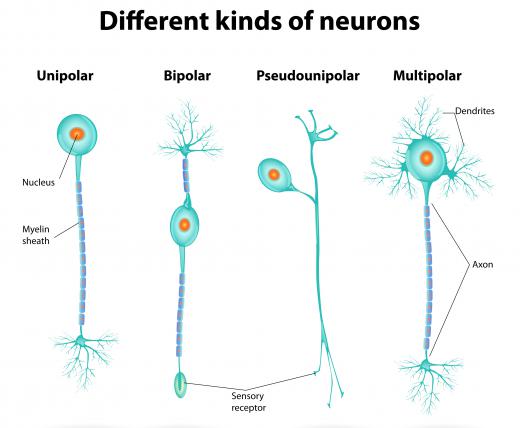What is Neuroscience?
 Mary McMahon
Mary McMahon
Neuroscience is a vast field of study which encompasses the workings of the nervous system. People who are interested in neuroscience can work in a wide range of areas, from psychology to computer science. Numerous educational institutions around the world offer training in neuroscience, often with a specific slant or focus. Many of these institutions also carry out cutting-edge research which probes into the workings of the human mind in an attempt to know more about people and the ways in which they interact with the world.
As a scientific discipline, neuroscience started to come into its own in the middle of the 20th century, as technology which could illuminate the workings of the nervous system began to emerge. Until the development of equipment like Magnetic Resonance Imaging (MRI) machines, the brain was a black box; scientists would input information, and the brain could put information out, but no one knew what happened inside. Developments in fields like molecular biology and computer science further enhanced this field, providing more information and tools to work with.

The nervous system can be broken into two main parts. The central nervous system includes the brain and spinal cord, while the peripheral nervous system includes the extensive network of nerve cells everywhere else in the body. Many structures are included in the nervous system, from basic neurons to glial cells, and their interactions are extraordinarily complex. The human nervous system is constantly at work transmitting and receiving information, and the survival of an individual body relies on a functioning nervous system.

Neuroscientists look at all aspects of the nervous system; they study the biochemical signals which nerves transmit, the effects of various substances on the nervous system, the evolutionary development of the nervous system, and many other things. Some focus on healthy nervous systems, while others study pathology, examining what causes the nervous system to fail, and how diseases of the nervous system can be prevented or treated.

Psychologists and psychiatrists look at how the nervous system affects human behavior, focusing on the brain and the ways in which it processes information. Computer scientists and engineers model artificial neural networks for computing on the biological network in the body, and experiment with things like creating prosthetic limbs which can actually respond to nervous system signals, making them functional for their users. Neurosurgeons perform delicate surgical procedures on the brain, while other specialists in the field of neuroscience look at how people learn, think, acquire languages, and perform tasks ranging from remembering to breathe to composing symphonies.
AS FEATURED ON:
AS FEATURED ON:













Discussion Comments
I would like to study neuroscience in college. Does anyone know about a college in which I can study for a neuroscience career?
Post your comments